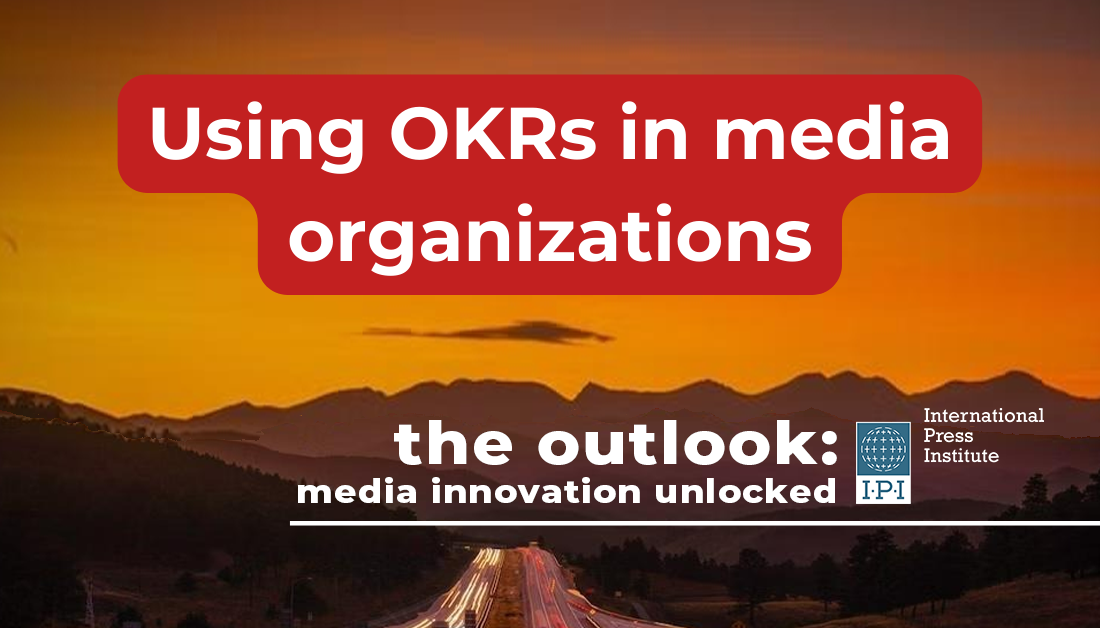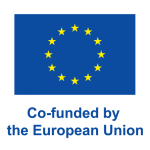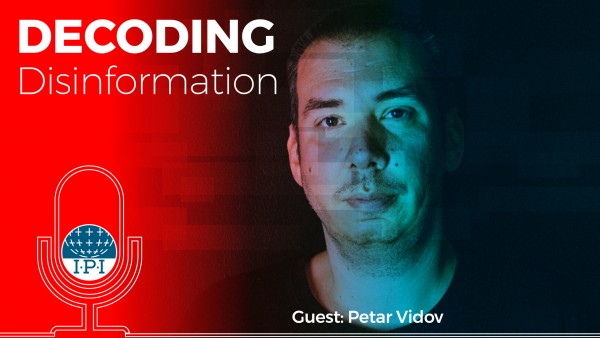This text comes from IPI’s newsletter The Outlook. Click here to sign up to receive future editions direct to your inbox.
In this week’s edition of The Outlook, IPI’s media innovation newsletter, we’re talking goal-setting and strategy for your media business.
The challenge: how to align your team and organization around a goal
Many news organizations have a clear idea of the broad goals they want to achieve – cover politics or breaking news, investigate the impacts of climate change on your community or provide public interest information to your city. However, translating these goals into strategy is the difficult part. Newsrooms can be chaotic places where silos can easily form and communication is unclear.
At Večer Mediji, a Slovenian news publication that participated in IPI’s Transition Accelerator, the organization’s focus had traditionally been on print.
Yet the team knew that they needed to work on their digital transformation in order to reach a new, younger audience – and they also wanted to bring their older readers with them on the transformation. Working in a small market, and publishing only in Slovene, reaching as many domestic readers as possible was crucial to success.
They told IPI that they were grappling with “the central problem of unifying the priorities in our editorial office, which in our multi-generational editorial team can sometimes be a source of disagreement”.
The solution: Try OKRs
As part of IPI’s work supporting newsrooms on their journey to sustainability, we study which methods work best in supporting newsrooms through the thorny process of change management.
We do this by setting OKRs (Objectives and Key Results – a concept borrowed from the tech industry) tailored to newsrooms at the start of each programme. Večer Mediji went through this process during the Transition Accelerator, and it led to clear improvements:
- The editorial team now spend at least as much time on publishing to the website as they do preparing the print edition.
- Data about article performance and reader behaviour was made easily accessible to all the organization’s journalists, to speed up informed decision-making. One example is a new strategy for writing effective teasers.
- To reach younger, digital native audiences, the team not only made changes to their content (more videos and podcasts) but also their business model (partnering with a local university to create a student subscription package)
By using the OKR framework, Večer Mediji said they were able to get the majority of colleagues on board with the transition to digital, making the above changes possible.
The Takeaway: Focus on outcomes, not activities.
One of Večer Mediji’s objectives was to reach more young readers. As outlined above, they tried a few different things to achieve this – but the crucial step in working with OKRs is focusing on and iterating the results. This meant not just doing the activities which they believed would achieve this, but adding structure with regular check-ins, and adjusting the strategy accordingly.
Another example comes from Lazy Women, a fellow Transition Accelerator participant. The founders were eager to take the step from ‘hobby blog’ to ‘functioning media outlet’. To achieve this objective, they worked towards outcomes linked to setting up the operational side of the business: opening a business account, securing an accountant and legal advisor, and establishing the executive team.
News from IPI’s Media Sustainability Team
Opportunity: Join IPI’s virtual newsroom visit to the Tribal News Network in Pakistan! It takes place on Zoom on Monday, September 25 (15.00 CEST) and we’ll be hearing about how they established a network of citizen journalists and set up an innovative funding model. Sign up here.
We are also excited to announce the ten early-stage newsrooms taking part in IPI’s New Media Incubator.
The selected news organizations serve audiences such as Gen Zs in Germany and Ukraine; residents of regions underserved by traditional media; and members of minority groups including Belarusians living abroad and Arabic speakers in Spain. They will spend the next six months developing their business and learning media innovation strategies and rest assured, we’ll be sharing lessons from their journeys on the IPI website and in this newsletter.
Funding opportunities for media
- The FT is offering a fellowship and a £1,000 reporting grant to a mid-career journalist based in Sub-Saharan Africa to produce a long-form business or economic story from the region.
- An opportunity for early-career journalists interested in covering artificial intelligence: The Tarbell Fellowship offers a stipend, mentorship and training, and it’s open to journalists based anywhere in the world.
- Chevening Scholarships offer fully funded one-year Masters scholarships in the UK for global applicants; they cover a range of subjects including media and journalism.
- Brazilian human rights NGO Fala has opened applications for its new media business incubator, which is relevant to journalists leading small media organizations.
IPI’s media innovation and sustainability work is made possible with support from the European Union, Friedrich Naumann Foundation and ERSTE Foundation.




